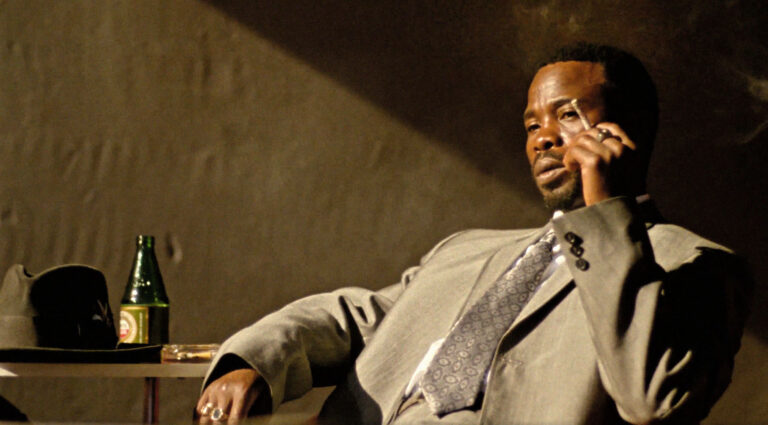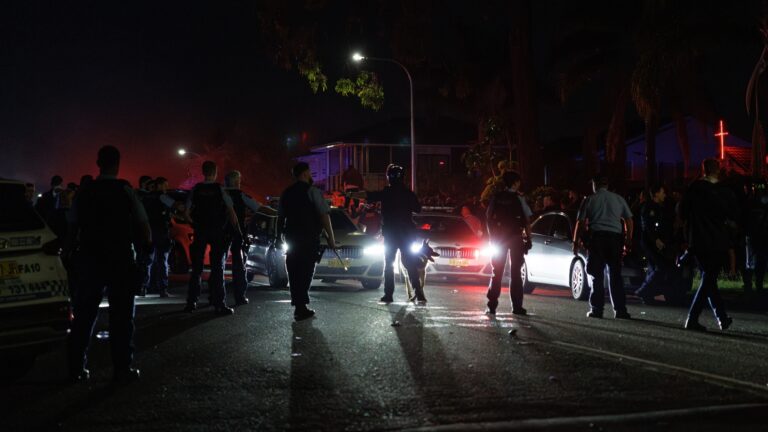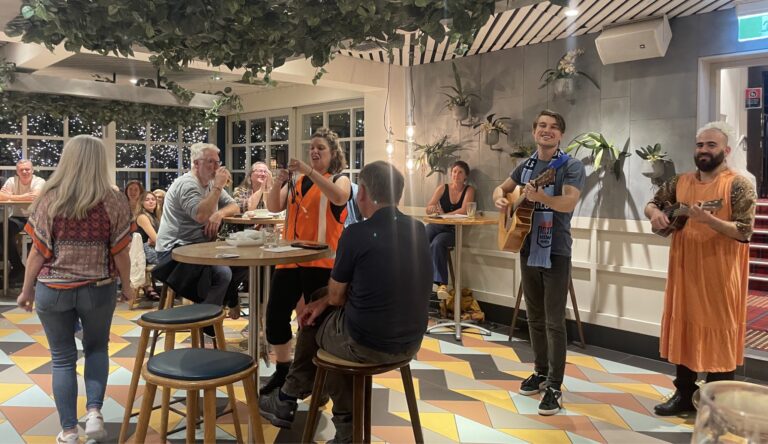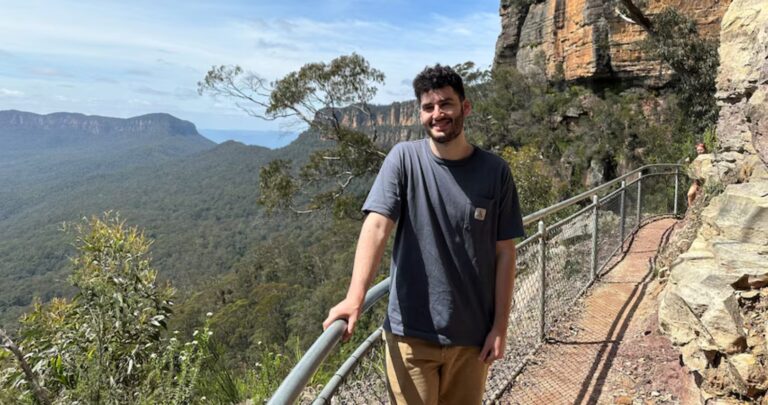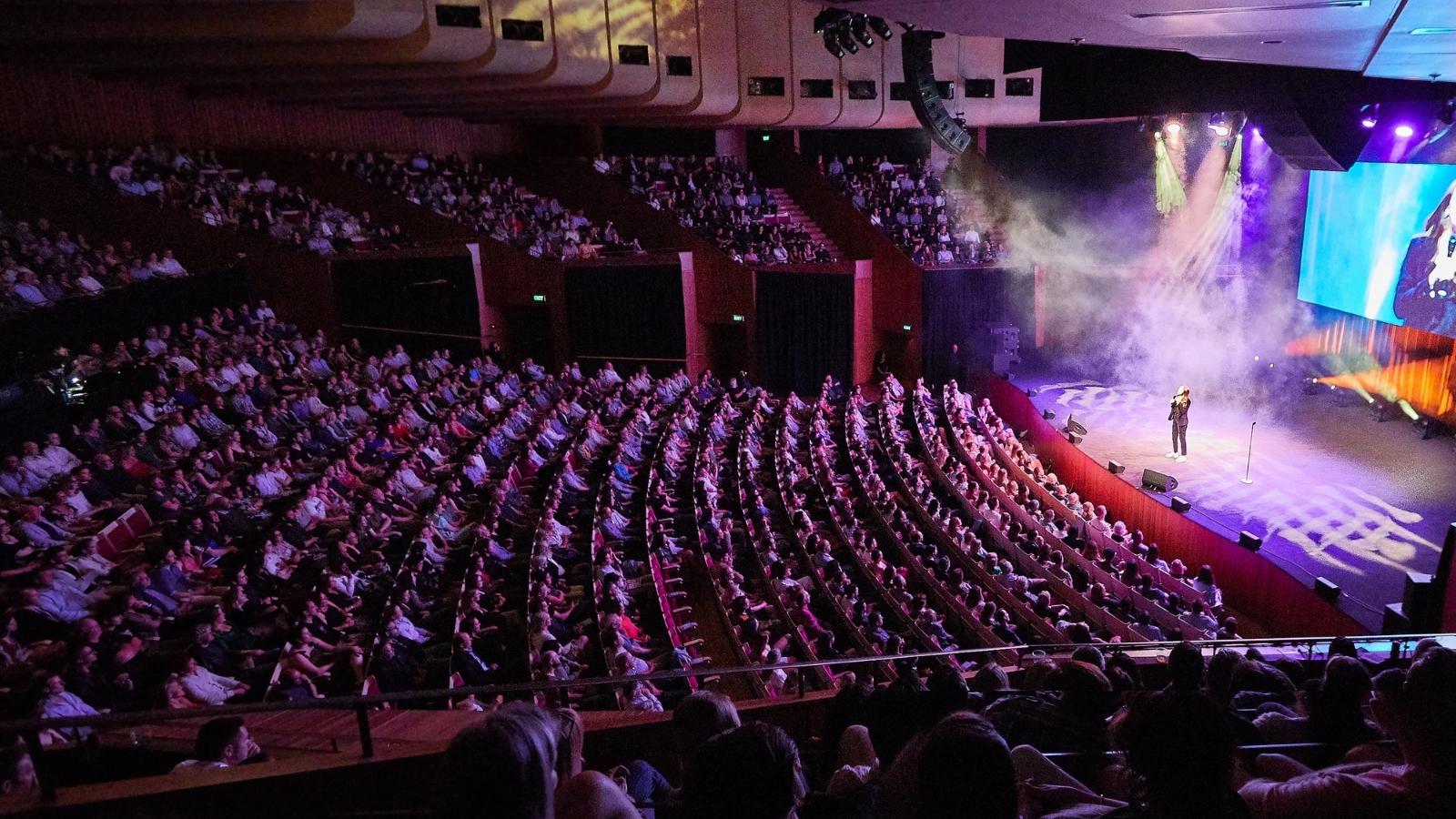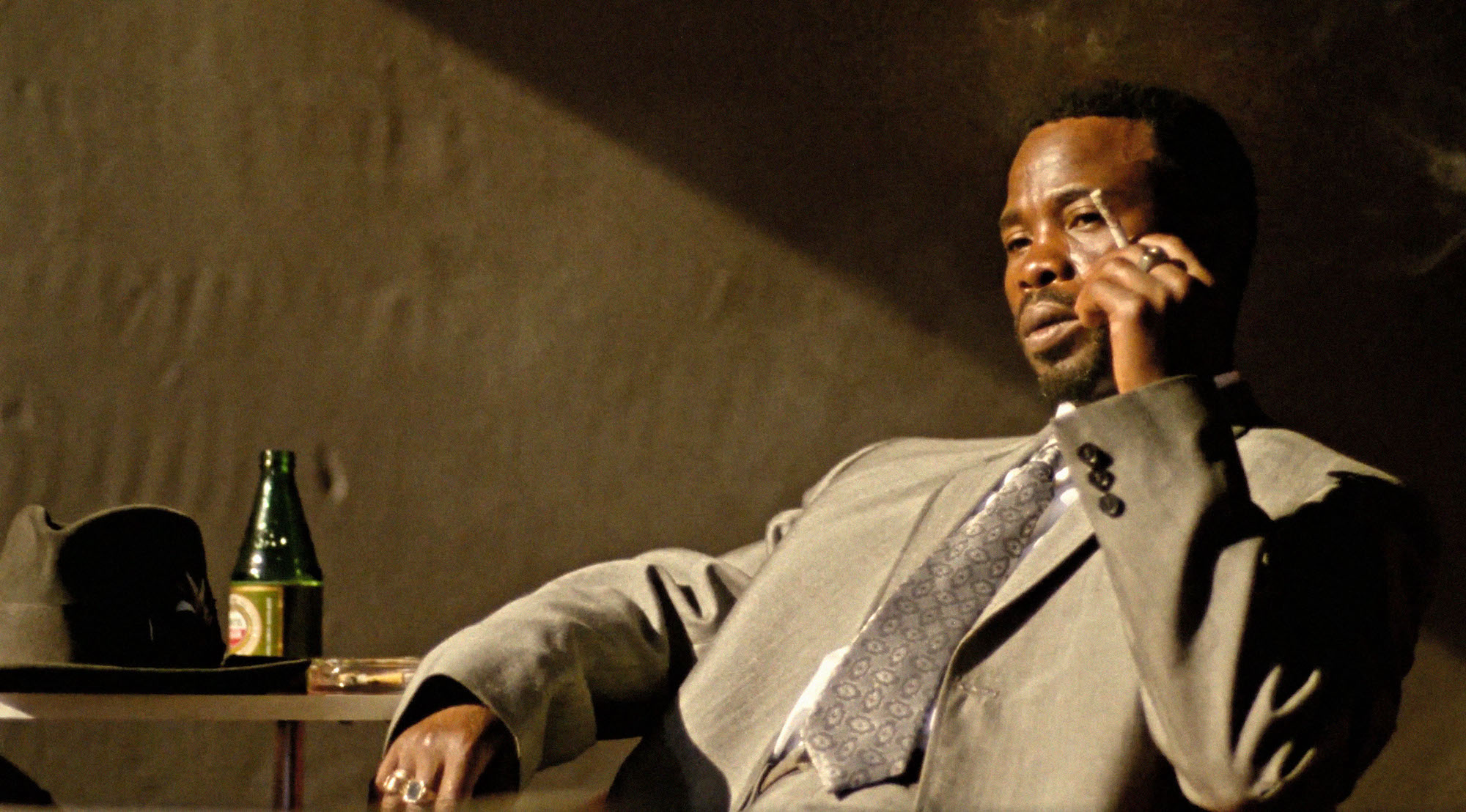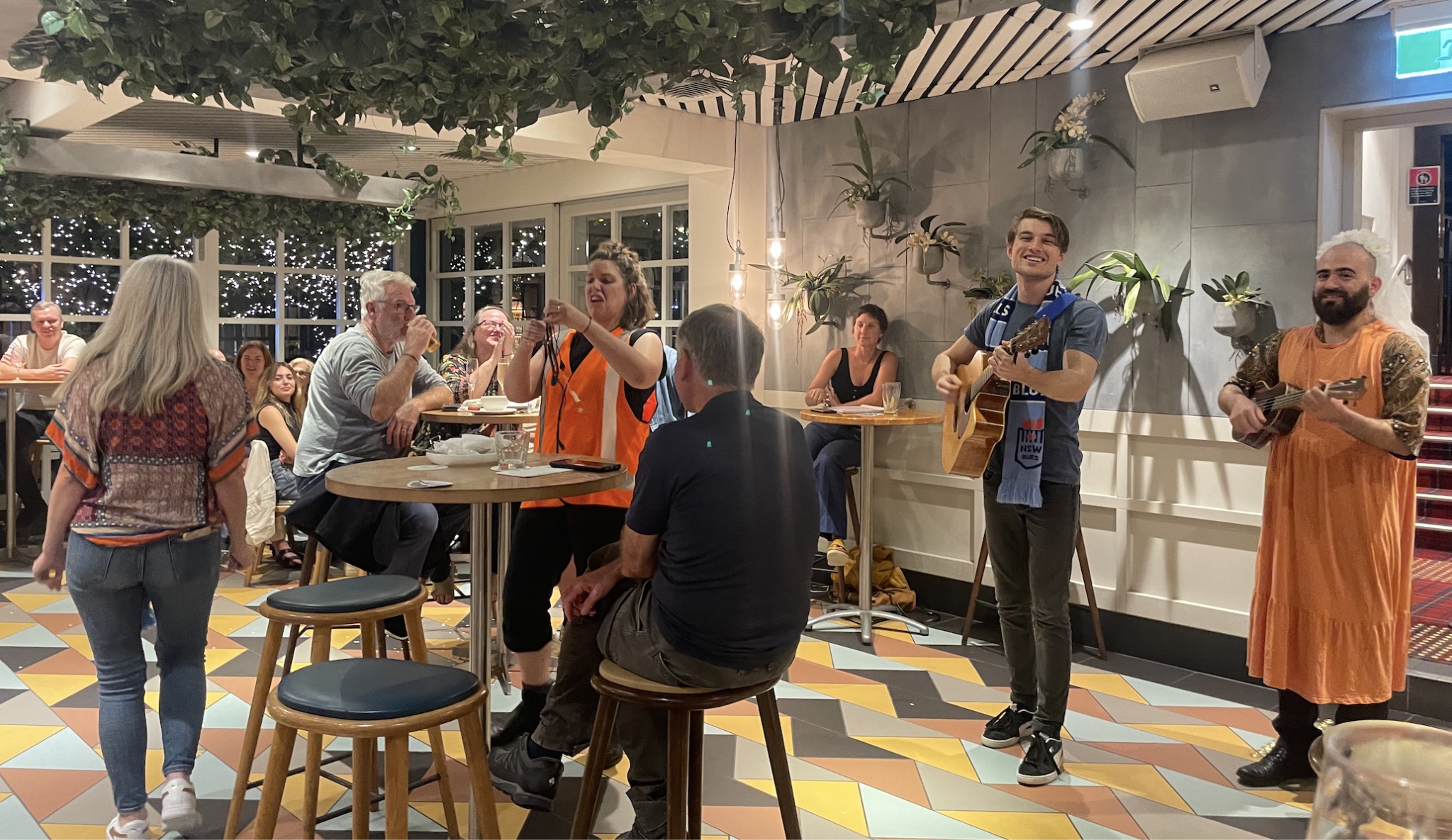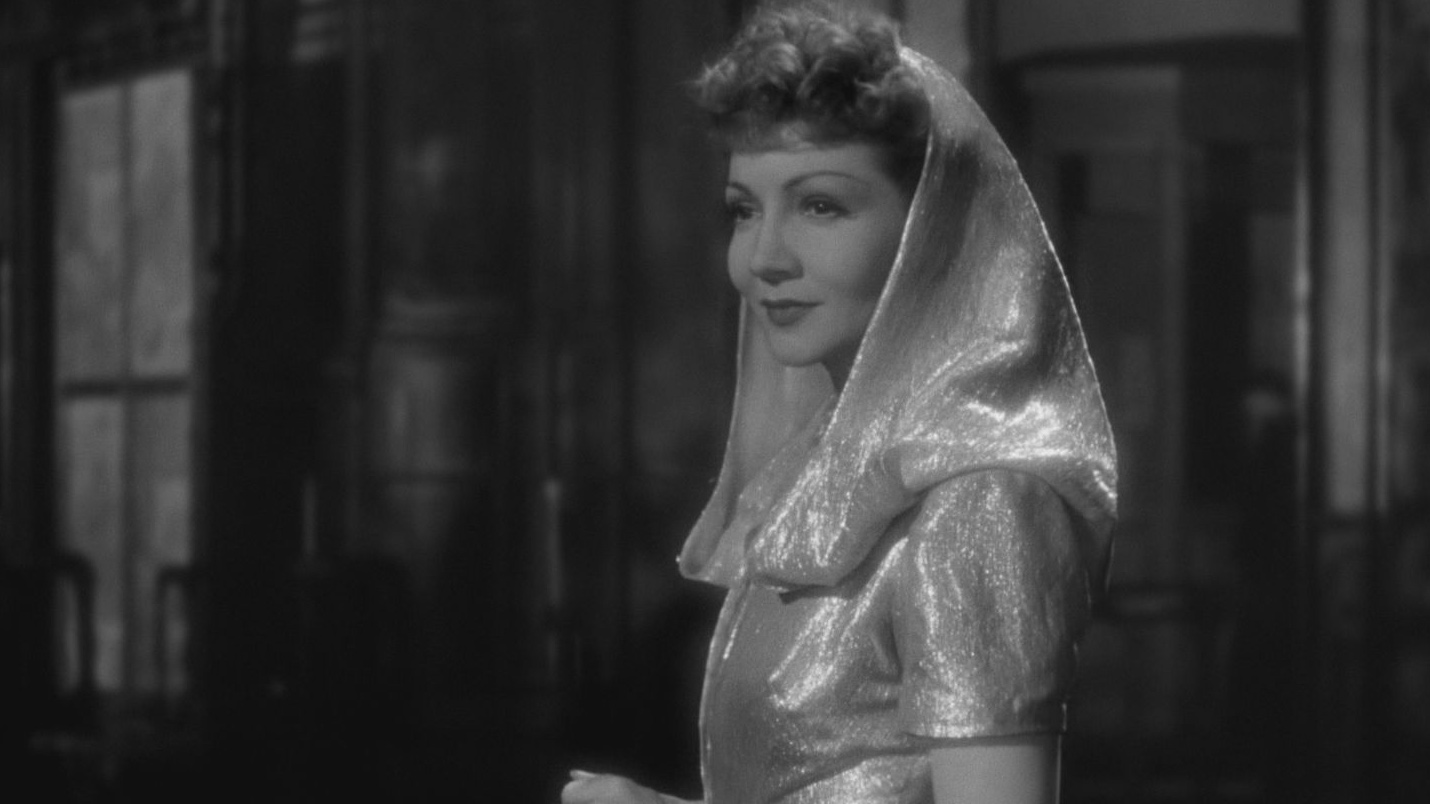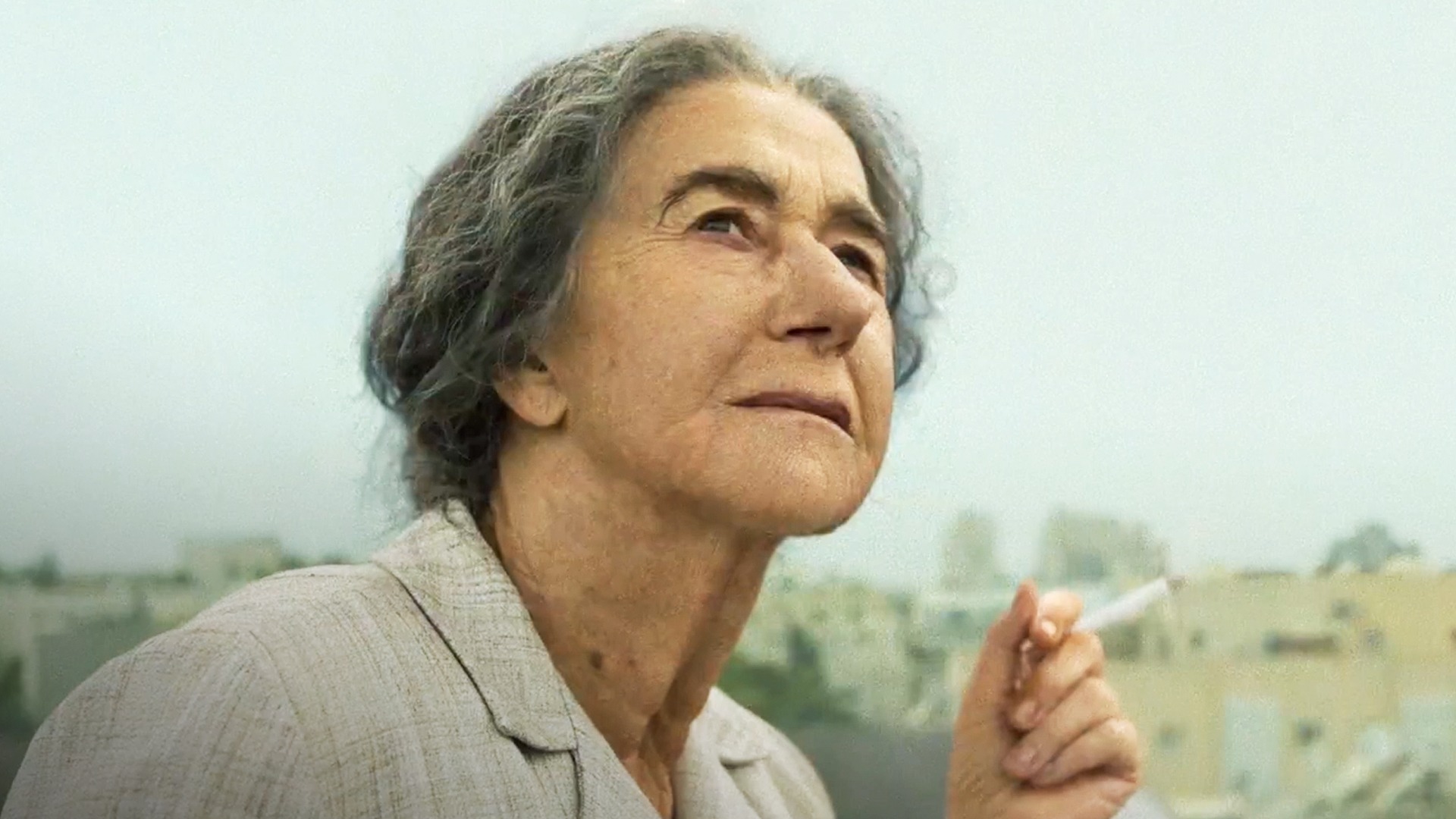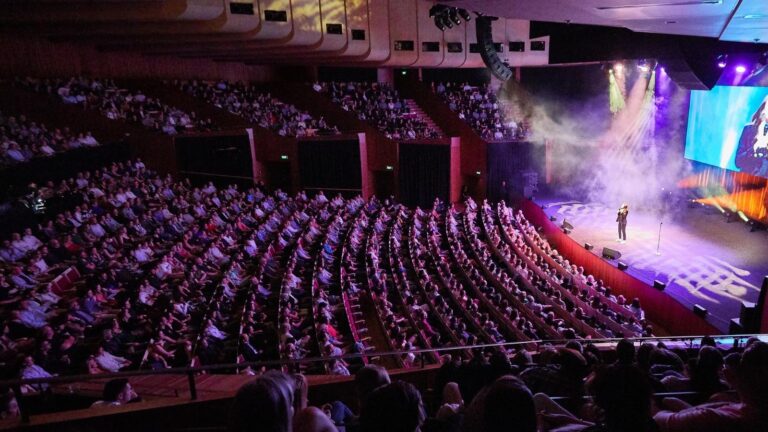
Josh Pyke is busking for real change

You can keep the loose change in your pocket. When Josh Pyke takes the stage at The Roller Den, he doesn’t want your shrapnel – he is calling for real change.
Moved by the looming Indigenous literacy crisis in remote regions of Australia, Mr Pyke is working with the Indigenous Literacy Foundation (ILF) to close the literacy gap between Indigenous children and their non-Indigenous peers. To celebrate Indigenous Literacy Day, Mr Pyke will be joined by local hip-hop mainstay Urthboy for the Busking For Change fundraiser.
As a songwriter and musician, Mr Pyke has a special appreciation for the privilege of literacy – the ability to create meaning with words and the gift of storytelling. The ARIA Award-winner explains, “I couldn’t do what I do without the literacy skills that I have – reading and writing are the basis for my song writing.
“Reading helps us to make sense of the world around us. Or sometimes you read a book to escape from the world. For Indigenous kids, improved literacy is a really important step towards self-determination.”
For those who struggle with basic literacy, reading is an alienating chore. Without literacy skills, communication is compromised and it can be difficult to fully participate in everyday life.
The scale of the Indigenous literacy gap is highlighted in the National Assessment Program Literacy and Numeracy (NAPLAN) 2013 National Report. Nationwide, in all areas of learning, the scores for Indigenous students are substantially lower than those achieved by their non-Indigenous peers.
The report shows that Indigenous students in remote locations are especially susceptible to low literacy levels. In Australia’s most isolated communities, only 54 per cent of Indigenous students met the national minimum standard for reading in Year 3, while 94 per cent of their non-Indigenous counterparts achieved that benchmark.
Similarly, many Indigenous children lack basic writing skills. While a 94 per cent majority of non-Indigenous Year 3 students in very remote locations achieved the national minimum standard for writing in 2013, less than half (42 per cent) of their Indigenous peers reached that standard. In the Northern Territory, the literacy divide is even greater.
Having worked with some of Australia’s most isolated and vulnerable Indigenous communities, ILF Program Manager Tina Raye explains, “There are many reasons why Indigenous children are being outperformed in school – language is a key contributing factor. In remote areas, many Indigenous children learn to speak two or three other local languages before they learn English”.
According to the Australian Bureau of Statistics (ABS), more than half of Indigenous families in very remote areas speak an Indigenous language in the home. Around Australia, of the 19,067 Indigenous children under 14 years who speak Indigenous languages, one third cannot speak English well or at all.
Ms Raye belongs to the Bardi & Jabirr Jabirr people, north of Broome and the Arabuna people, near Lake Eyre. She explains the cultural obstacles that impede literacy equality, “For many of these children, school is the first exposure to English. And, in many schools, teachers are not properly trained or experienced in teaching English as an additional language.”
She adds, “Access to quality books, including books in first language, is very limited in remote communities with no books available to buy and often no community library.”
Aiming to promote a nationwide culture of reading, the ILF provides remote Indigenous communities with free books. Working with community-based organisations, the ILF supports Indigenous parents so that they can develop literacy experiences together with their children.
Ms Raye says, “In some of these communities, there is no understanding of the concept of storytelling with books – stories are passed on and shared in other traditional ways. We work with authors and illustrators, community members, and local elders to publish stories in the children’s first language, as well as in English.”
With this fourth edition of his Busking For Change concert series, Mr Pyke expects to reach his $50,000 fundraising target for the ILF. He says, “I have always been outraged by inequality, and passionate about bridging the gap between Indigenous Australians and the rest of us.
“I felt like I didn’t have the knowledge or expertise to solve the problem on my own, but working with ILF has allowed me to lend support in an organic way that creates opportunities for Indigenous kids and communities.”
Ms Raye says, “Josh is a great ambassador for ILF. Beyond his generous fundraising efforts, he has made such an important contribution towards the work that we do to raise awareness and improve Indigenous literacy.
“Music and storytelling is a significant part of the culture. Josh has done songwriting workshops with children who speak a range of local languages – the music transcends language barriers,” she adds.
A gently spoken crusader, Mr Pyke says, “While I have always been a politically minded person, I don’t want to be a political musician. But when I see the consequences of inequality, the indignity, it’s impossible not to feel anger and I suppose, in some way, that creeps into my music.” (CC)
Busking for Change, Sep 4, The Roller Den, 32 Erskineville Rd, Erskineville, $30, buskingforchange.com.au
